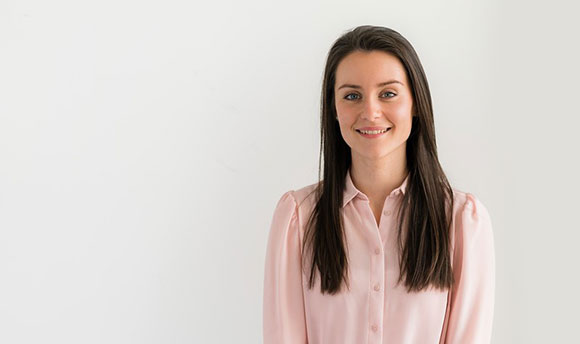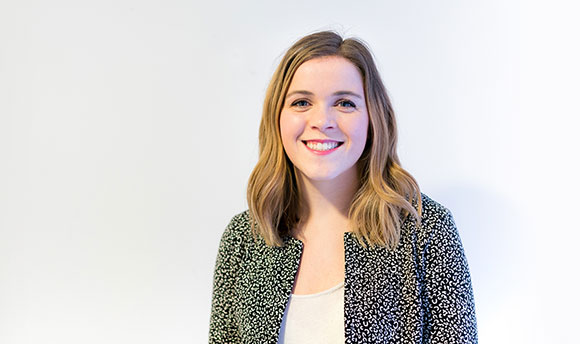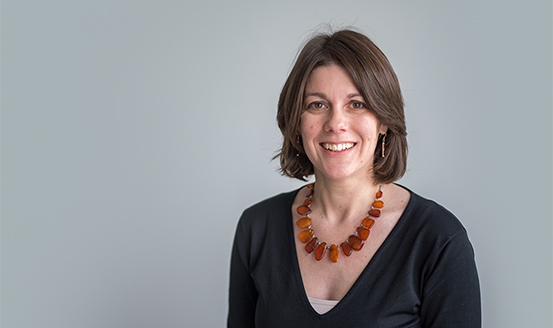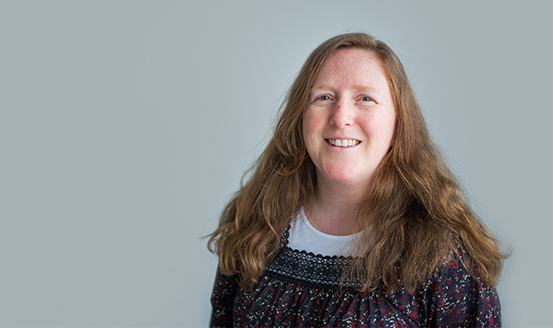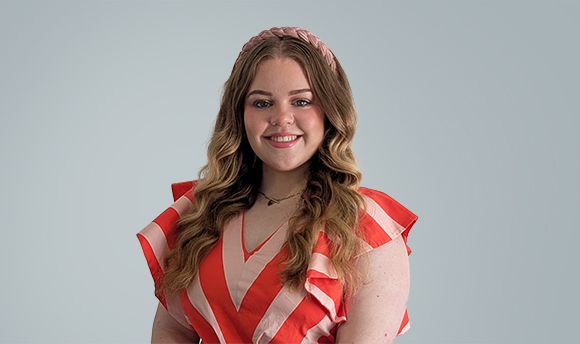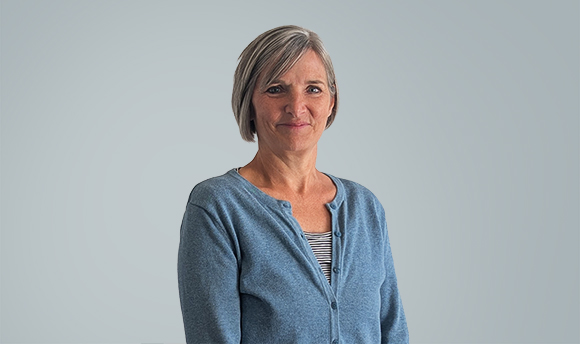Occupational Therapy (Pre-Registration) - MSc
The MSc in Occupational Therapy (Pre-registration) at QMU is designed for graduates who want to help others live fuller, more independent lives. Whatever your background, this accelerated two-year course will equip you with the skills, knowledge, and confidence to become a qualified occupational therapist.
You will learn through a dynamic mix of classroom teaching, hands-on placements, and real-world scenarios, developing the clinical reasoning, creativity and compassion that define outstanding occupational therapists.
Upon graduation, you’ll be eligible to apply for registration with the Health & Care Professions Council (HCPC) and begin your career in a field that’s growing, global and deeply rewarding.
It is delivered full time over two years, and you will complete a number of placements that enrich the learning experience and prepare you for a diverse practice context.
Your future in occupational therapy starts here. Two years. One life-changing career.
This course is not suitable for those already holding a degree in occupational therapy. If you do already hold a degree in occupational therapy, you may wish to consider our MSc Advancing Practice in Occupational Therapy instead.

Why QMU?
-
Personalised support from day one: We keep our class sizes small so you’re never just a number. You’ll be taught by experienced staff who will get to know you well, understand your goals, and support your professional learning journey.
-
Learn from experts and from people with lived experience: Our award-winning team brings together academic excellence, clinical expertise, and strong partnerships with health services, charities and community organisations. You’ll also learn from people who have experienced occupational therapy first-hand, adding depth and authenticity to your education.
-
Practice-ready learning: From day one, theory meets practice. You’ll work on real-life case scenarios, problem-solving tasks, and in hands-on workshops that prepare you for the realities of occupational therapy. Our placements are integrated into the curriculum, so everything you learn is relevant and applicable.
-
Think critically. Act confidently: We’ll challenge you to think deeply and creatively about the role of occupational therapy in today’s world. You’ll develop the reasoning and decision-making skills that employers value and that clients depend on.
-
Global opportunities: Our graduates work across the UK and internationally in Ireland, Europe, Canada, the USA, Hong Kong, Singapore, Australia, New Zealand and beyond. Wherever you want to take your career, QMU gives you the foundation to get there.
-
Professional recognition: On successful completion, you’ll be eligible to apply for HCPC registration and join the Royal College of Occupational Therapists and World Federation of Occupational Therapists.
Studying MSc Occupational Therapy (Pre-Registration)
As an occupational therapist, you’ll help people overcome barriers that prevent them from living life to the fullest. You’ll learn to work with individuals and communities, understand their unique circumstances, and co-create solutions that promote independence, wellbeing and belonging.
Our modules reflect the latest thinking in occupational therapy and prepare you for a wide range of practice settings. The course is grounded evidence-informed and occupation-centred approaches, so you’ll graduate ready to make a real difference.
In Year One, you will:
- study modules that provide you with the knowledge and skills that are foundational to occupational therapy practice;
- learn about occupation and its centrality in everyday life, as well as its relationship with health and wellbeing;
- work alongside other allied health professions students to prepare for professional practice;
- develop knowledge and skills for key occupational therapy processes such as assessment and goal setting, intervention planning, and measuring impact;
- explore topics in science and research related to occupational therapy; and
- complete a six-week and an eight-week placement.
In Year Two you will:
- learn more about planning, delivering and evaluating therapy in complex circumstances;
- develop further skills in working as an occupational therapist in different settings and with different types of issues, while explore issues related to practice, such as socio-political contexts, and how these influence occupation and occupational therapy;
- complete two eight-week placements; and
- participate in community partnership working or project development as part of a dissertation that extends your professional skill-set and your leadership abilities.
Structure and exit awards
This full-time course runs over 90 weeks. You’ll work toward the full MSc (340 credits, 120 of which are practice based learning). Completion of this award makes you eligible to apply for HCPC registration and begin practising as an occupational therapist.
Teaching, learning and assessment
We believe learning should be active, collaborative and relevant. That’s why our teaching blends academic study with practice-based learning, using real-world scenarios and problem-solving tasks to build your confidence and competence.
You will learn through the following methods:
- group work and workshops
- practice scenarios and case studies
- self-directed study and reflection
- digital learning and e-modules
- lectures and visiting speakers
- four full-time placements
Assessment is varied and inclusive, including:
- written assignments;
- viva voce assessments;
- presentations and projects
- peer and self-assessment; and
- placement evaluations.
Placements
Each year, you’ll take part in a full-time practice placement where you’ll apply what you’ve learned in class to real-life situations. Our students work with individuals and groups in a range of settings, from hospitals and schools to community teams and charities.
Year One
- Practice-based Learning 1 (6 weeks)
- Practice-based Learning 2 (8 weeks)
Year Two
- Practice-based Learning 3 (8 weeks)
- Practice-based Learning 4 (8 weeks)
Placements are arranged and managed by QMU, so you don’t need to worry about finding one yourself. We’ll work with you to match placements to your learning goals and personal circumstances, including any health needs or caring responsibilities.
You’ll gain the hands-on experience needed to give you a strong foundation for your future career.
Placements take place across Scotland, so you may need to travel or temporarily relocate for some of them. If you have specific needs that mean you must stay in one location, we’ll take that into account when planning your placement.
Please note that there are additional costs associated with placements. Please see the ‘Other fees’ section under the ‘Entry requirements’ tab for more details.
Teaching hours and attendance
Each on-campus module offers a dynamic blend of classroom learning and independent study. Academic sessions are typically scheduled between 9.00am to 6.00pm, providing a full and engaging learning experience. Placement opportunities reflect the real-world nature of professional practice, which may include evening and weekend hours across a seven-day service. During placements, you’ll work alongside experienced practice educators, gaining valuable insights by aligning with their working hours. To support your professional development, you’ll also need to arrange professional indemnity insurance.
Specialist facilities
QMU offers the following modern, purpose-built spaces to support your learning:
- Occupational Performance Room: A simulated home environment where you can practise your therapy skills
- Creative Arts Rooms: Spaces for exploring therapeutic use of art and creative occupations
- Outdoor Learning Hub: A unique setting for engaging with nature-based and outdoor occupational therapy practices
- Clinical Simulation Suite: A simulated ward where you can practice in a hospital environment
- Learning Resources Centre: Offering a wide mix of individual and group study spaces
Class sizes
We keep our class sizes small so you can learn from our highly skilled, passionate, and award-winning staff, who bring a wealth of expertise and real-world experience to the classroom. Some learning is shared with students on our undergraduate Master's courses, creating a vibrant learning community with diverse perspectives. You’ll build strong peer relationships and benefit from collaborative learning. You’ll also have opportunities to learn with students from other subjects like physiotherapy, speech and language therapy, and podiatry.
Teaching staff
Our staff are passionate award-winning educators, experienced clinicians and active researchers. They bring real-world insight into the classroom and are committed to helping you succeed. You can read more about the teaching staff on this course at the bottom of this page. Please note that teaching staff is subject to change.
- Theoretical Foundations of Occupational Therapy Practice (20 credits): This module is your essential introduction to the core of occupational therapy. You will investigate the philosophies and fundamental ideas that underpin our profession, exploring theories and models that guide how we understand and promote health and well-being. Beyond theory, you will develop professional skills, including effective communication, collaborative working skills, and engagement in reflective practice to build resilience. You will connect scientific knowledge to occupational therapy, enabling you to evaluate the causes of ill-health, disability, and disruptions to people's ability to engage in meaningful occupations.
- Foundations for Evidence-informed Occupational Therapy (20 credits): This module explores research and evidence in occupational therapy. You will explore fundamental ideas about how we gain knowledge, examining different research approaches and methods. A key focus is on developing your skills to identify and critically evaluate various sources of evidence, helping you determine their relevance and applicability for making complex decisions in practice. You will learn to propose suitable research methods for real-world occupational therapy questions and critically consider the ethical implications of generating knowledge. This module will strengthen your ability to be an evidence-informed and ethical practitioner.
- Preparing for Professional Practice and Practice-based Learning (20 credits): This module will prepare you for professional practice across the allied health professions. Mandatory learning for practice -based learning, completed through the placement passport is introduced early in the module. The module will go on to explore relevant knowledge, skills, values and behaviours for all allied health professionals through a critical lens and through reflection will build understanding of the application of concepts to their own profession area.
- Practice-based Learning 1 (20 credits): This module offers your first opportunity to learn in a practice setting. You will acquire knowledge and a repertoire of foundational skills for functioning in a practice-based learning setting. You’ll observe practice and reflect on your performance. Where appropriate you’ll take an active role with service users, applying knowledge and developing professional reasoning skills.
- Assessment and Analysis in Occupational Therapy (20 credits): This module will equip you with the essential skills to understand assessment in occupational therapy. You will learn the core purposes of assessment, from understanding a person's unique strengths and challenges to identifying their goals.
- Interventions1: Enabling Skills and Occupations (20 credits): This module equips you with the skills to critically analyse, justify, and evaluate interventions for rehabilitation and restoration of body function and occupational performance capacity. The module is structured into three main components: foundational theory, case-based application, and intervention evaluation.
- Practice-based Learning 2 (30 credits): Your second practice-based learning module will encourage you to draw upon and integrate knowledge from your university-based studies and previous learning from PBL1. During this practice-based learning you will actively contribute to the practice setting. Emphasis is on practice and experience of the occupational therapy process, problem solving and communication.
- Intervention 2: Contexts to Enable Occupation (20 credits): This module develops the skills you need to critically analyse, justify, and evaluate interventions for rehabilitation and restoration of body function and occupational performance capacity. The module addresses client-centred and occupation-centred approaches, ethical considerations, and evidence-based practices to guide intervention design. You will study diverse cases focusing on specific populations and considering occupational needs and concerns.
- Practice-based Learning 3 (30 credits): Your practice-based learning module will help broaden and consolidate their knowledge and skills. You will gain a greater degree of autonomy, adopting a co-worker role with your practice educators, assuming joint responsibility for all aspects of service provision.
- Master’s Dissertation (60 credits): This module enables you to consolidate the knowledge and skills of research and independent inquiry developed throughout the programme by undertaking an evidence-informed piece of work. You will identify and explore a topic of academic, personal or professional relevance, contributing new insights and advancing understanding within your chosen subject, field, or professional practice. Guided by a supervisor, you will produce an evidence-based piece of work that demonstrates academic rigour, independence, critical analysis, and reflective practice.
- Advancing OT: Skills for Practice in Unpredictable Contexts (20 credits): This module develops your awareness of the complex nature of OT practice, integrating various theories to navigate real-world challenges. You will explore leadership skills crucial for effective collaboration with other professionals, partners, and agencies in fast-changing environments. A key focus will be on strengthening your ability to make evidence-informed decisions, problem-solve creatively, and innovate solutions in complex situations.
- Practice-based Learning 4 (30 credits): On your final practice-based learning module before graduation you will assume responsibility for a small caseload under minimal supervision.
Occupational therapists are in demand across the UK and internationally. Our graduates work in the following areas:
- NHS and public health services
- Education and employment support
- Local authorities and social care
- Prisons and justice services
- Charities and third sector organisations
- Private practice
Many of our alumni have gone on to work in Canada, the USA, Australia, New Zealand, Hong Kong and across Europe. With an MSc from QMU, your career can take you anywhere.
Entry requirements
-
A minimum of a 2:1 Honours degree in a subject relevant to Occupational Therapy and completed within the last five years is normally required. Applicants with experience in the field who hold a 2:2 honours degree will be assessed on an individual basis. We are always happy to talk to potential applicants. Please contact us if you would like to discuss your eligibility.
-
If English is not your first language English you will need to provide evidence of English language competence at no less than IELTS 7.0 with no individual component score less than 6.5. Further details can be found here: English Language Requirements | International Students | Queen Margaret University
-
Evidence of completing significant independent study such as a dissertation, academic project, or practical research experience.
-
We’re looking for applicants who can show a commitment to occupational therapy as a positive career choice and have meaningful experience working with people from a variety of backgrounds, including those who are marginalised or living with disabilities. This can be demonstrated through paid work, volunteering, or personal involvement in settings such as health, social care, education, or the third sector.
-
Applicants who graduated more than 10 years ago will be considered on an individual basis. Please contact the team to find out more.
-
Two satisfactory references, one academic; one professional.
-
You will be invited to participate in a values-based group interview or to meet with an admission tutor as part of your application.
Other requirements
A satisfactory criminal records check from the Protection of Vulnerable Groups (PVG) Scheme, an occupational health check and personal indemnity insurance (normally through membership of the professional body) are required.
Other costs
- The cost of professional indemnity insurance is the responsibility of the student. For more information on this, visit the PG 2026 fees page on our website.
- The additional costs associated with placement travel and accommodation are the responsibility of the student. Students who receive SAAS funding may be able to claim for some of these expenses to be reimbursed.
- Uniform, PVG and badge costs – please see PG 2026 fees page on our website.
Applying for this course
For more information on applying, or to apply for this course, please follow the links in the 'Start your application' box at the top right of this page.
Application deadline
The course accepts applications throughout the year, and normally the deadline for each academic year is mid-August for Home applicants, while the deadline for International students will typically be the end of June. Applications will close earlier if course is filled and advise you to apply early to be considered.
We are always happy to talk if you are considering studying Occupational Therapy at QMU. Please contact Occupational Therapy team or contact Admissions.
- The delivery of this course is subject to the terms and conditions set out in our 2026/27 Entry - Terms and Conditions (Postgraduate).
- The information on this page is correct at the time of posting (October 2025) but is subject to change following a routine re-validation. In the event that modules change, QMU will seek to use reasonable endeavours to ensure that there is no detrimental impact on students. Please keep an eye on this page for updates.
Interview with student Beth Crockett
Become your best you: study at QMU
Course Overview
A Student Story (see bottom of page for more)
“I think more than anything, my experience at QMU taught me to think differently. It taught me to reason, critique and challenge assumptions - this is a mode of thinking that is very important in my line of work. I still feel I have so much more to learn, but I think this comes with hands on experience.”
Read my storyContact Us
Join us at one of our Postgraduate Open Events
Find out about online and in-person opportunities to meet with us to find out more about our postgraduate courses and study at QMU.
Postgraduate Open Events - More Info and Bookings